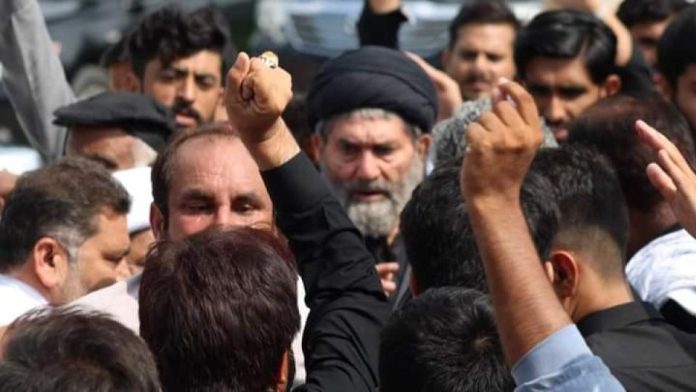Protests and demonstrations that originated in Chilas (Diamer), Pak-occupied Gilgit-Baltistan (POGB) have expanded to other regions, including Upper Kohistan district. Astore district has also witnessed additional sit-ins and demonstrations making the law and order situation in POGB worrisome. These protests have led to road closures and disruptions across the area.
The Karakoram Highway remains blocked in Chilas, and traffic on Babusar Road has come to a halt. In Gilgit city, roads have been obstructed at multiple locations, and sit-ins persist in various parts of the city.
The protests originated from disrespectful remarks by Sheikh Baqir Al-Hussaini, a religious scholar based in Skardu. He has made various derogatory comments about religious and historical figures, however, he denies this. Therefore, protesters are demanding legal action against the scholar and his arrest, or else they will continue their demonstrations.
Members of the Shia community have also faced discrimination by the Pakistani government, which has played an important role in intensifying and adding to the recent wave of protests. This region has a history of sectarian conflicts that has led to loss of lives.
The epicentre, Chilas, has witnessed blockades to the Karakoram Highway, which has halted the traffic on Babusar Road. Moreover, several routes within Gilgit city have been closed off by demonstrators. Even though, elected officials and administrators have attempted to engage with demonstrators, the negotiations have failed.
Refuting the rumours, the GB Education Department has denied of any plan to close schools in Gilgit city on Monday. However, some private educational institutions might remain close.
Gilgit-Baltistan is a Shia-majority region in Pakistan-occupied-Jammu and Kashmir. It is grappling with economic hardships and lack of quality educational facilities. This gap has been filled by madrasas, which has often propagated sectarian hatred and extremism. The violence of the region is the result of weak and inefficient political and judicial systems. This region has always been manipulated by the Pakistan ‘establishment’ which has led to escalation of the sectarian violence in the region.

